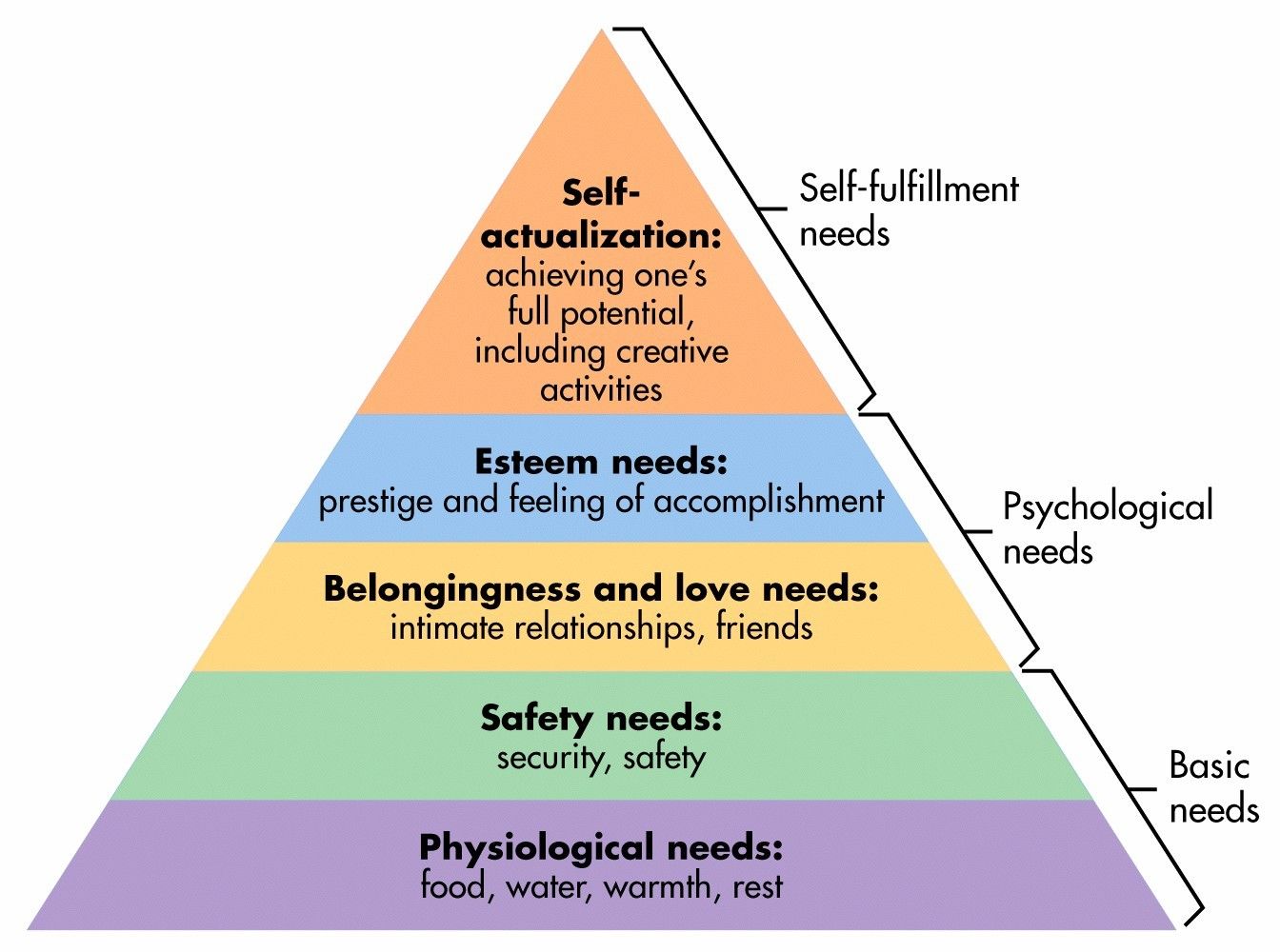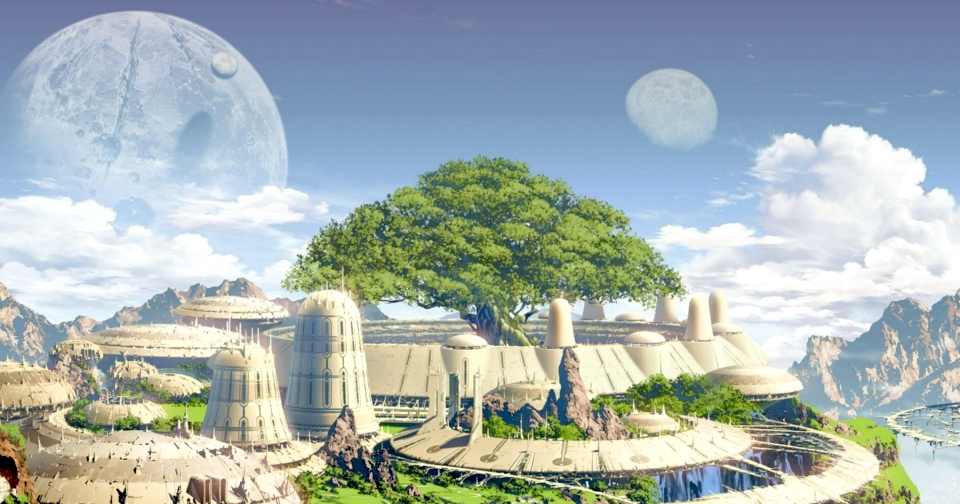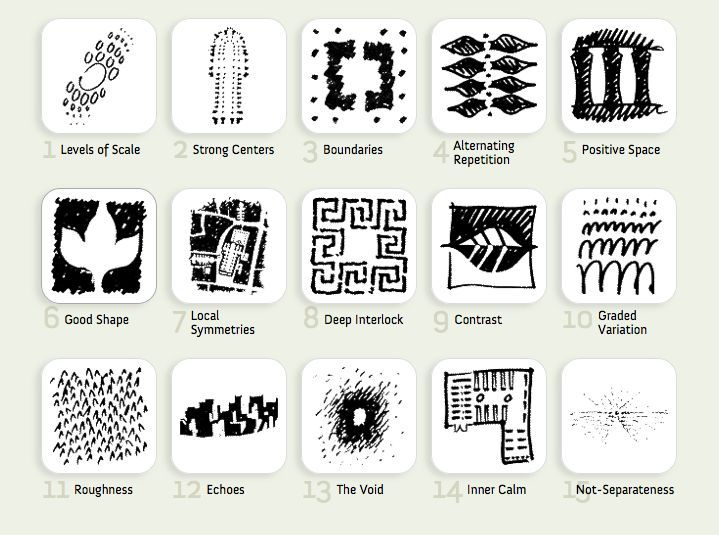Network States - Policy, Cities, States and Governance

A thriving state is one that is able to provide its citizens with the resources and opportunities they need to be successful. The state's government is effective and efficient, and its citizens are active and engaged in their communities. The state's economy is strong and its businesses are thriving. The state's infrastructure is well-developed and its tax system is fair and equitable.
Science, technology, the arts, and other areas of culture are thriving in the state, and the state's citizens are healthy and well-educated. It is a state where people want to live, work, and raise a family. A thriving state isn't just a place where people can find a job—it's a place where they can find a good life.
—
Themes
Enabling every citizien the most meaningful existence
The way different citizens live and what they wish to do can vary greatly. To create a meaningful life for all, there are several approaches that can be explored. One such example is Maslow’s Hierarchy of Needs, which focuses on providing individuals with the basic essentials for life, such as food, shelter, and healthcare, as well as security and protection. It also involves encouraging a sense of community and belonging, building self-esteem, and providing chances for personal development and self-actualization.
One potential limitation of Maslow’s hierarchy of needs is that it does not adequately address the role of external factors, such as societal norms and values, in shaping an individual’s sense of meaning and fulfillment. For example, an individual may feel that their existence is meaningful even if they do not have all of their basic needs met, if they are fulfilling a higher purpose or contributing to something greater than themselves. In order to truly enable individuals to achieve their most meaningful existence, it may be necessary to consider the broader social and cultural context in which they live.

Achieving true social and economic justice
We need to create a world where everyone has an equal opportunity to thrive, regardless of their social or economic background. We need to end discrimination and create a level playing field where everyone has a fair chance to succeed. We need to provide everyone with the resources they need to live a dignified life, and we need to ensure that no one is left behind.
Eliminating poverty and hunger, and an universal basic income
We need to end poverty and hunger. This means providing everyone with the resources they need to live a dignified life. It also means creating opportunities for everyone to earn a decent living. We need to invest in education and health care, and we need to create an economic system that works for everyone. We need to ensure economic security. This means creating an economic system that works for everyone. It also means providing everyone with the opportunity to earn a decent living. We need to invest in education and health care, and we need to create an economy that is sustainable and equitable.
Guaranteeing basic rights and liberties for all
We need to ensure that everyone enjoys the same basic rights and liberties. This includes the right to life, liberty, and security of person, the right to freedom of thought, conscience, and religion, the right to freedom of expression, the right to freedom of assembly and association, and the right to freedom from discrimination.

Creating a sustainable future
We need to create a future where we can meet the needs of present generations without compromising the ability of future generations to meet their own needs. This means protecting the environment, using resources responsibly, and investing in renewable energy. It also means reducing our reliance on fossil fuels, and ensuring that everyone has access to clean water, air, and food. We need to protect the environment. This means reducing our reliance on fossil fuels, and investing in renewable energy. It also means reducing pollution and protecting natural habitats. We need to make sure that everyone has access to clean water, air, and food.
Abundance of most goods and services; enabled by ai, automation and energy breakthroughs: prices rapidly decreasing for many goods and services
- “A stable economic system requires two components: growth and inclusivity. Growth: most people want their lives to improve every year. Economic inclusivity matters because it’s fair, produces a stable society, and can create the largest slices of pie for the most people. As a side benefit, it produces more growth. “
- “focus on taxing capital rather than labor, and we should use these taxes as an opportunity to directly distribute ownership and wealth to citizens.¥”
Self-actualising people have both a more efficient perception of reality and more comfortable relations with it. This includes the detection of what is phoney and/or dishonest and the accurate perception of what really exists – rather than a distortion of perception by one’s needs.
Self-actualisers accept themselves, others and nature. They are not ashamed or guilty about being human, with its shortcomings, imperfections, frailties, and weaknesses.
Nor are they critical of these aspects in other people. They respect and esteem themselves and others.
Advancing scientific and technological progress
We should explore the origins of scientific and technological advancement, and find new and innovative ways to encourage it. We should be investing more heavily and effectively into ambitious basic research and development.
There is no one answer to this question. Some factors that could be considered include:
- The origins of scientific and technological advancement. This can include looking at how different cultures and societies have encouraged scientific and technological innovation throughout history.
- The role of government in promoting scientific and technological advancement. This can include examining how different governments have supported or hindered scientific and technological innovation.
- The role of the private sector in promoting scientific and technological advancement. This can include looking at how different companies have invested in or promoted scientific and technological innovation.
- The role of academia in promoting scientific and technological advancement. This can include examining how different universities and research institutions have encouraged or hindered scientific and technological innovation.
Promoting peace and international cooperation
We need to promote peace and international cooperation. This means working towards disarmament and demilitarization, and resolving conflicts through peaceful means. It also means supporting international institutions and organizations, and respecting the sovereignty of all nations.
Decentralize power, empower the citiziens
I believe that it is essential to decentralize power if we want to secure a bright future for humanity. Too much power is centralized in governments, corporations, and other institutions. This creates an imbalanced distribution of power which favors the interests of the few over the many. By decentralizing power, we can create a more just and equitable world where everyone’s rights are protected. One potential solution are different explorations in new mechanisms for public goods funding and the work RadicalxChange is exploring.
Existential risks and solutions: AI alignment, climate and hard tech, pandemics etc.
Artificial intelligence is the most serious threat to the survival of the human race. We need to take climate change, pandemics, and other issues much more seriously and dedicate massive resources to solving and preventing them.
We also need to ensure that artificial intelligence is developed responsibly, with safety and humanity in mind. We need to make sure that AI is not used to exploit or control people, and that it is not used to make decisions that could have catastrophic consequences. We need to be very careful about how we use and develop artificial intelligence, and make sure that we do not create a future in which machines are in control and humans are powerless.
Improving education
We need to improve education. This means providing everyone with the opportunity to receive a quality education. It also means making sure that education is affordable, and that it meets the needs of all learners. We need to invest in teacher training, and we need to make sure that our educational system is inclusive and equitable.
Properly accounting for negative externalaties
For example solving climate change by introducing a carbon tax
Effective resource allocation and taxation
Such as harberger taxes for industrial land or patent licenses.
Pattern Language by Christopher Alexander
Reads
- Pattern Language by Christopher Alexander
- The Network State by Balaji
- “Praxis Society” Master Plan
- Crypto Cities Article by Vitalik
- Sovereign Individual Book
- What do I think about network states? by Vitalik —
Entering Policy for impact
Effective altruism approach
- Government and policy in an area relevant to a top problem by 80000hours
- Guide to working in AI policy and strategy by 80000hours
- Policy-oriented government jobs by 80000hours
—
Some interesting policy ideas
A decentralized network state: The Network State by Balaji
“Network states are social networks with an agreed-upon leader, an integrated cryptocurrency, and a definite purpose. They crowdfund territory and have a sense of national consciousness. They’re created by motivated online communities who are willing to build trust and cooperation both online and offline.
In short, the technology exists to allow us to create new societies, new economies, and new states, all without the need for centralized control or traditional qualifications. All that is required is a motivated online community, and the willingness to build trust and cooperation both online and offline.”
“Technology has allowed us to start new companies, new communities, and new currencies. But can we use it to create new cities, or even new countries? A key concept is to go cloud first, land last — but not land never — by starting with an online community and then materializing it into the physical world. We get there in seven steps:
1. Found a startup society. This is simply an online community with aspirations of something greater. Anyone can found one, just like anyone can found a company or cryptocurrency.2 And the founder’s legitimacy comes from whether people opt to follow them.
2. Organize it into a group capable of collective action. Given a sufficiently dedicated online community, the next step is to organize it into a network union. Unlike a social network, a network union has a purpose: it coordinates its members for their mutual benefit. And unlike a traditional union, a network union is not set up solely in opposition to a particular corporation, so it can take a variety of different collective actions.3 Unionization is a key step because it turns an otherwise ineffective online community into a group of people working together for a common cause.
3. Build trust offline and a cryptoeconomy online. Begin holding in-person meetups in the physical world, of increasing scale and duration, while simultaneously building an internal economy using cryptocurrency.
4. Crowdfund physical nodes. Once sufficient trust has been built and funds have been accumulated, start crowdfunding apartments, houses, and even towns to bring digital citizens into the physical world within real co-living communities.
5. Digitally connect physical communities. Link these physical nodes together into a network archipelago, a set of digitally connected physical territories distributed around the world. Nodes of the network archipelago range from one-person apartments to in-person communities of arbitrary size. Physical access is granted by holding a web3 cryptopassport, and mixed reality is used to seamlessly link the online and offline worlds.
6. Conduct an on-chain census. As the society scales, run a cryptographically auditable census to demonstrate the growing size of your population, income, and real-estate footprint. This is how a startup society proves traction in the face of skepticism.
7. Gain diplomatic recognition. A startup society with sufficient scale should eventually be able to negotiate for diplomatic recognition from at least one pre-existing government, and from there gradually increased sovereignty, slowly becoming a true network state.
The key idea is to populate the land from the cloud, and do so all over the earth. Unlike an ideologically disaligned and geographically centralized legacy state, which packs millions of disputants in one place, a network state is ideologically aligned but geographically decentralized. The people are spread around the world in clusters of varying size, but their hearts are in one place.
As the population and economy of a startup society grow comparable to that of a legacy state, with millions of citizens and billions in income, it should eventually4 be able to attain recognition from existing sovereigns — and ultimately the United Nations — just as Bitcoin has now become a bona fide national currency.”
Praxis Society Master Plan
Praxis plans to build a new city, rooted in a moral primitive of vitality and health, in which people come together to create a shared culture, purpose, and ownership. To do this, we need to solve the cold start problem: the simultaneous coordination of people, businesses, and financing. The pandemic has created an unexpected wedge to do this: remote work. By attracting a community of talented people, we can raise the financing needed to build the city, and then grow it organically. This demand-first economic development model offers the opportunity to build a new city and a new future.
